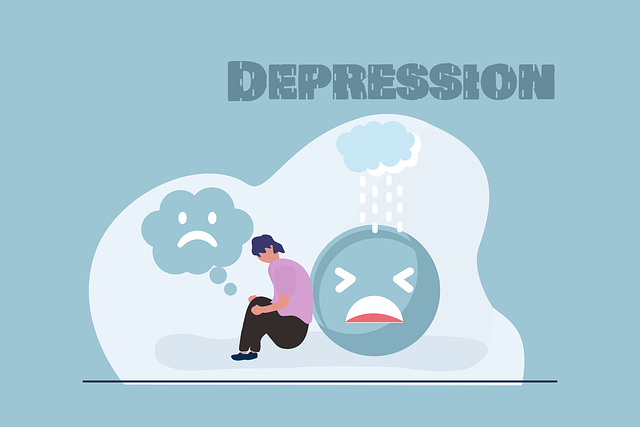Understanding and improving mental health policies, such as those tailored for Golden Autism Spectrum Disorder (ASD), is crucial for driving change. By analyzing existing policies, leveraging media like podcasts, and implementing evidence-based therapies, we can address gaps in support for individuals with ASD. Resilience-building programs empower them with coping mechanisms. Advocacy, raising awareness, and promoting specialized services are key to enhancing mental well-being. Successful global initiatives, like Iceland's holistic approach and the UK's policy framework, offer valuable case studies for improving access to care, reducing stigma, and fostering neurodiversity acceptance.
Mental health policy analysis and advocacy are vital components of creating a more supportive society. This article delves into crucial aspects of mental well-being, focusing on Autism Spectrum Disorder (ASD) as a lens to understand unique challenges and potential solutions. We explore ‘Understanding Mental Health Policy’ as the foundation for positive change. The impact of ASD on mental health is examined, highlighting the need for effective therapy. Golden threads of evidence-based approaches in ASD therapy are unveiled, offering hope. Advocacy strategies are presented to drive improvements in mental health services, with successful policy implementations showcased through case studies.
- Understanding Mental Health Policy: A Foundation for Change
- The Impact of Autism Spectrum Disorder (ASD) on Mental Health
- Golden Threads in ASD Therapy: Evidence-Based Approaches
- Advocacy Strategies for Improving Mental Health Services
- Case Studies: Successful Mental Health Policy Implementations
Understanding Mental Health Policy: A Foundation for Change

Understanding mental health policy is a cornerstone for advocating meaningful change. It involves comprehending the intricate web of laws, guidelines, and programs that shape how societies support and treat individuals with mental health conditions. By delving into these policies, we can identify gaps, inefficiencies, and areas ripe for innovation. For instance, focusing on the needs of those with Golden Autism Spectrum Disorder (ASD) through therapy and specialized services can lead to transformative advancements.
This knowledge empowers advocates to navigate complex systems, ensuring that mental wellness becomes a priority. Initiatives like the Mental Wellness Podcast Series Production highlight the power of media in raising awareness and fostering conversations around mental health. Moreover, resilience-building programs, which are integral parts of these policy discussions, equip individuals with coping mechanisms, enhancing their overall well-being.
The Impact of Autism Spectrum Disorder (ASD) on Mental Health

Autism Spectrum Disorder (ASD) significantly impacts mental health due to the unique challenges individuals with ASD face. Beyond the classic symptoms of ASD, such as social communication difficulties and repetitive behaviors, many people on the spectrum also struggle with anxiety, depression, and sensory sensitivities that can exacerbate their emotional well-being. The impact is further compounded by the potential for social isolation and limited access to specialized support services tailored to their needs. This highlights a critical area where mental health policies must intervene, focusing not just on diagnosis but on holistic Golden Autism Spectrum Disorder Therapy that addresses both the disorder’s core manifestations and associated mental health concerns.
Implementing effective Risk Management Planning for Mental Health Professionals is crucial in navigating this complex landscape. Such plans should prioritize creating safe, supportive environments for individuals with ASD while empowering therapists with tools to foster positive thinking and build confidence among their clients. By integrating evidence-based practices and tailoring interventions to individual needs, mental health professionals can significantly enhance the outcomes of those living with ASD, ultimately improving their overall mental well-being.
Golden Threads in ASD Therapy: Evidence-Based Approaches

In the realm of Golden Autism Spectrum Disorder (ASD) therapy, evidence-based approaches stand as golden threads weaving a supportive tapestry for individuals navigating this unique neurodivergent spectrum. These strategies focus on holistic development, targeting not just cognitive aspects but also the intricate web of social and emotional connections that are integral to ASD individuals’ overall well-being. By integrating coping skills development into treatment plans, professionals equip individuals with essential tools to manage challenges and enhance their ability to thrive in daily life.
Emotional well-being promotion techniques, tailored specifically for ASD individuals, have proven effective in fostering resilience and improving quality of life. This involves teaching mindfulness practices, social communication strategies, and trauma support services that address the heightened sensitivity often associated with ASD. Such interventions not only help in managing anxiety and stress but also promote a sense of safety and belonging, enabling individuals to navigate social environments with greater confidence and comfort.
Advocacy Strategies for Improving Mental Health Services

Advocacy plays a pivotal role in shaping mental health policies and ensuring accessible, quality services for all. One effective strategy is raising awareness through public campaigns that highlight the prevalence and impact of mental illnesses, like Autism Spectrum Disorder (ASD). Educating communities about ASD can reduce stigma, foster understanding, and encourage early intervention. Additionally, advocating for increased funding and resources dedicated to mental health initiatives, including specialized therapy for ASD, is essential.
Focusing on Burnout Prevention Strategies for Healthcare Providers is another crucial advocacy area. By promoting work-life balance, providing support networks, and integrating Mindfulness Meditation into professional training, we can enhance provider well-being and, in turn, improve patient outcomes. Furthermore, designing Mental Health Education Programs that cater to diverse populations and incorporate innovative teaching methods ensures that mental health resources are inclusive and effective for everyone, regardless of background or identity.
Case Studies: Successful Mental Health Policy Implementations

Successful mental health policy implementations often provide valuable insights and serve as case studies for other regions to learn from. For instance, countries like Iceland have pioneered holistic approaches that integrate self-awareness exercises and empathy building strategies into their national healthcare systems. These initiatives focus on early intervention and prevention, ensuring a strong foundation for mental wellness across the lifespan. By prioritizing mental health as a public good, these nations have achieved remarkable outcomes in reducing stigma, increasing access to care, and improving overall community resilience.
Another notable example is the comprehensive policy framework developed in the United Kingdom for individuals with Golden Autism Spectrum Disorder Therapy. This approach focuses on tailored interventions, fostering an inclusive society that embraces diverse neurodiversity. Through robust policy design, early diagnosis, and specialized therapy, these programs enhance quality of life for individuals on the autism spectrum while promoting a culture of understanding and acceptance. Such case studies underscore the transformative potential of evidence-based policies in shaping mental health landscapes globally.
Mental health policy analysis and advocacy are vital components in creating a more supportive and accessible landscape for individuals, especially those on the autism spectrum. By understanding the unique challenges of ASD and its impact on mental health, we can identify evidence-based therapies that have proven successful. Advocacy strategies, when combined with robust policy implementations, as seen in various case studies, offer a promising path forward. We must continue to push for policies that prioritize mental well-being, ensuring everyone has access to the golden threads of therapy that can transform lives and foster inclusive communities.














